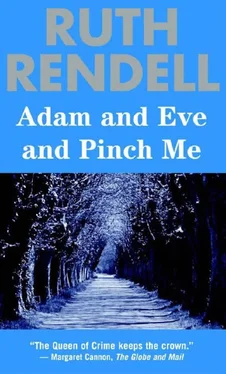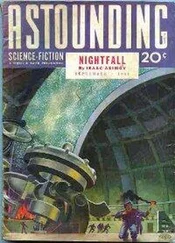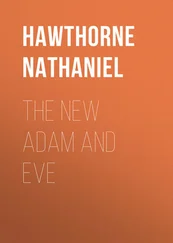Why would he have called the woman Polo? He had that peculiar addiction to Polo mints, chewed up a tube of them every couple of days, so this woman must have had something in common with them. Incongruously, she remembered Jeff’s funeral and the wreath of white rosebuds his father and the person called Beryl had sent. It had looked just like a mammoth version of a mint with a hole in it. Mint, she thought, mint, hold on to that, as she consulted the voters’ list for the London Borough of Brent.
A woman called Minton was perhaps what she was looking for. Could you be called “Peppermint”? She turned page after page. Those eligible to vote were listed in the electoral register according to street, not name. If she was very young or a lunatic or a peer she wouldn’t be listed, but she couldn’t be under eighteen, could she? Jeff had surely never gone for very young girls. If she wasn’t a British citizen she wouldn’t be there either. Natalie thought that a distinct possibility as she ran her finger down the side of the pages. A lot of immigrants settled in this area, many of them waiting for naturalization. Surely, when he’d briefly talked of “Polo,” said where she lived and that he owed her money, he’d have mentioned that she was Asian or African or from Eastern Europe.
She’d started a long way back, almost as far as North Circular Road, the borough limit, and now she’d come close in her search to Harrow Road and the cemetery. Only Lilac Road remained after Syringa and then she’d have to acknowledge that this line of investigation had failed. Her finger on the left-hand margin stopped. Here, at number 39, was something. Knox, Araminta K . No one else in the house, apparently. Just this one single woman.
“Minta,” she probably called herself. That would be a gift to Jeff, who would immediately have thought of his Polos. She could hear him saying it. “I shall call you Polo.” Polo, Polo, the rick-stick Stolo, round tail, bobtail, well done, Polo. She lived alone, so very likely owned her house. Natalie remembered Jeff trying to make her take out a second mortgage on her flat to start some business he enthused about. By then she knew him well enough to be quite sure he’d do no such thing, but spend the money on horses and other women. Was that how he came to owe this Polo a thousand pounds? Because he’d got her to mortgage her house?
It was a bit farfetched, perhaps. Certainly a woman living in that neighborhood, in Syringa Road, wouldn’t be well-off; she wouldn’t be able to afford to lose such a sum.
“I don’t want to hear this,” Fiona said, wishing she’d never asked this Reckman woman in and determined not to mention Linda Davies.
“Well, no, it’s not very pleasant for me, either. I was fond of Jeff myself. But I knew what he was.”
Like a child being told frightening things, Fiona covered her ears. Not usually timid or shy, she found this woman overwhelming. The trouble was that even with her hands over her ears she could still hear.
“It was a thousand pounds. He told me himself. As I’m sure you know, he had lunch with me on the day he was killed. I’m certain this Araminta Knox couldn’t afford to lose that amount. Not living in a little back street in what’s practically Harlesden. Did he have money off you?”
“We were going to be married!”
“Well, hardly, my dear. He was married to Zillah Melcombe-Smith, aka Watling, aka Leach. I’ll tell you frankly that while he was with me I paid all the bills and let him have the use of my car. And gave him pocket money. He called it loans but I was never under any illusions of that sort. I suppose it was the same thing with you. When did you think your wedding was going to be, may I ask?”
“August,” said Fiona, “and no, you may not. I’d like you to go now, please.”
Natalie was quite willing to comply. She’d got a great deal: the furnishings of the house, the carpets and paintings, Fiona’s clothes and her general appearance, as well as a lot of admissions as to her feelings for Jeff. “You really ought to be gratified,” she said as a parting shot. “He must have left this Araminta for you, you know.”
“For my money,” said Fiona bitterly and then wished she hadn’t.
Once Natalie had gone, she began to cry. Ever since Jeff’s death, her illusions-as that woman called them-had gradually been stripped away. She would soon be left with nothing but her bare love, bruised and scarred as it was. After a while she dried her eyes, washed her face, and looked for Araminta Knox in the phone book. There she or someone called Knox was, at 39 Syringa Road, NW10. Why are we such inquisitive beings that even in great despair and sorrow curiosity impels us to seek answers that probe into old wounds?
She went next door, passing, of course, the offending gateposts on her way out. The informality of using the back door was gone, she was sure, forever and she was back to ringing the bell. They still kissed, she and Michelle, lips not quite touching cheeks. “I really came to ask you both to come in and have a drink with me. There’s something I have to tell you. Do come.”
They hadn’t done so for a long time. Not since, like a crass fool, she’d said that stupid thing to the police about their disliking Jeff. Michelle hesitated. Perhaps there was something in Fiona’s face, a look of beseeching, of tears hardly dried, that made her say, “All right. Just for half an hour.”
The first thing Michelle noticed when she came into Fiona’s living room was that there was something different about the mantelpiece. An expensive-looking alabaster and silver urn had joined the clock and the candlesticks. She said nothing. Fiona had put champagne on ice. “Is there something to celebrate?” Michelle asked.
“Nothing. When you’re feeling really down, you put out more flags, don’t you?”
Matthew extracted the cork skillfully, without spilling a drop. Raising her glass, Fiona said, “I want to ask your advice.” She told them what she knew of Araminta Knox.
“Have you told the police about her? Have you told them about the one who wrote you the begging letter?”
Fiona looked at Matthew in surprise. “Why would I do that?”
“It’s another suspect, isn’t it? Someone else for them to persecute instead of us.”
“I did what I told you I’d do about Linda Davies. I sent her the money. And it made me feel better, a bit better.”
Looking down at the glass in her hand, watching the bubbles rise, Michelle said, trying to keep her tone equable, “You sent her a thousand pounds? You sent her a check?”
“I thought she might not have a bank account so I sent notes, fifty-pound notes, packed into a padded bag. And I felt I was-well, righting the wrongs Jeff did. I’d begun to do that. I know what he was now, you see. I know he preyed on women”-she used Linda Davies’s expression, her voice rising-“and had no compunction about it. Rich women and poor women, it didn’t much matter to him so long as they kept him and put a roof of their own over his head. His death was a lucky escape for me, wasn’t it?”
“Oh, Fiona, I’m so sorry…”
“Perhaps that was my motive for murdering him. What do you think? A means of escape I hadn’t the courage to take any other way. The trouble is I still love him, just as much as I did when I thought he was honest and decent.”
After they had gone Fiona sat for a long while staring at the urn on the mantelpiece. She had thought of scattering Jeff’s ashes somewhere nearby, perhaps on Fortune Green, but these latest revelations about his life had changed her mind. The urn had cost her a small fortune, which was quite funny, really, if you were in the mood to be amused. She took it off the mantelpiece and, crawling on all fours, put it at the back of the dark cupboard under the stairs.
Читать дальше











